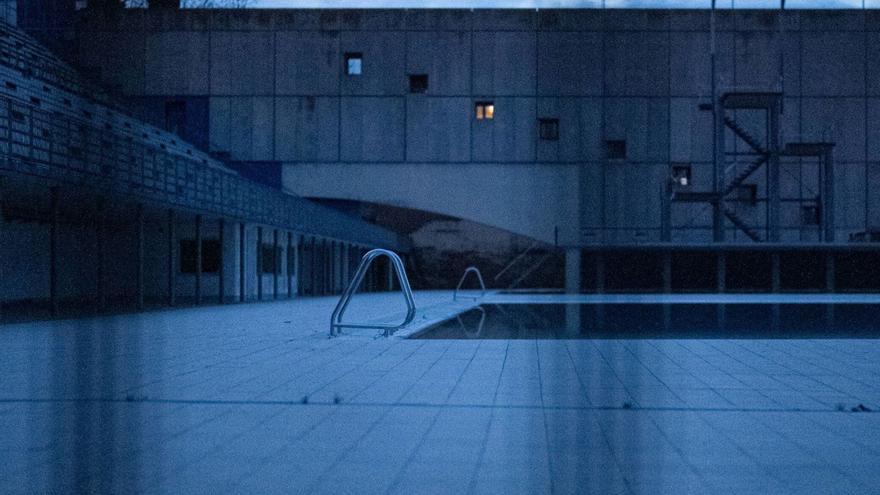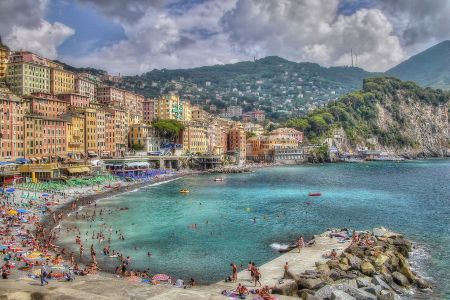One of the most prominent measures is the closure of all swimming pools (municipal and tourist). Exceptions will only be made for practicing sports, in the case of centers registered in the official census, and swimming pools designated for therapeutic use.
The emergency phase, now in place in 37 municipalities, will be activated for more than five million people in 202 municipalities supplied by the Ter and Llobregat rivers (including Barcelona and surrounding areas) in the coming weeks. Mascourt is happy that he was able to delay the radical decision to enter a state of emergency for a few weeks: “It was thanks to the efforts of the whole world.” The emergency will be in three stages: Emergency 1, Emergency 2, and Emergency 3.
In the first phase, affected municipalities will not be able to consume more than 200 liters per person per day on average (including spending on shops and public buildings such as hospitals). So far, all restrictions are said to be included in the current drought plan. But now, after today's approval, this plan has undergone some modifications.
Based on requests from the sports sector, it was decided to include flexibility so that some swimming pools can continue to operate. As of the first phase of the state of emergency, the tourism sector will not be able to fill its swimming pools, an aspect that will also not be possible in municipal swimming pools that are not used for sports. Mascourt confirms that this restriction is “general” and does not target any specific sector. The only exception is state-listed swimming pools, which can be partially filled, replenishing lost water each day. However, it is forbidden to fill it from scratch:
– In case of emergency 1 If these swimming pools are full, the water used must be replaced by storing it in the facilities of the sports center or gym: this could be by closing the bathrooms or in another way. Outdoor pools must close bathing areas starting in Phase 1.
– In case of emergency No. 2, and to ensure this compensation, the showers in these centers must be closed.
-In Emergency No. 3, they will have to close the swimming pools in all gyms and sports centers, even if they do not have swimming pools. All swimming pools (including sports pools) must stop filling.
Another exception: Swimming pools designated for therapeutic use in hospitals, residences, or rehabilitation centers may be filled.
-It is not permissible to fill the rest of the swimming pools that do not use sea water (hotels, campsites, neighborhood communities).
– Spas that use spring water will be able to continue operating.
Given the summer, it has not yet been determined what is included in the drought plan. It remains to be seen whether they will then be allowed to fill swimming pools that serve as climate shelters, as happened last year, something that has not yet been ruled out. How will we ensure that all pools are not full? The government confirms that it has appointed people to monitor compliance with the drought plan.
Sports turf
Football or other sports clubs that need to water their fields will also have restrictions. The Ministry of Health will approve a decree allowing them to use renewable or phoretic (groundwater) water, as it has been studied that at the current quality it does not pose any risk to health. The conditions for these irrigations are as follows:
Clubs must be irrigated with renewable water or groundwater. The authorities will have a list of companies that can supply them with this water. You can also consider treating bath water and then using it for irrigation.
-In an emergency 1, if they water, they must make up for what they spend by saving in other aspects of their facilities. Closing bathrooms is just one possible option.
– In case of emergency 2, if it rains, they must close the bathrooms.
– In case of emergency 3, irrigation will not be possible under any circumstances.
public gardens
It was planned that with the entry into a state of emergency, only large trees would be allowed to be watered to ensure their survival. But finally, all trees as well as plants in green areas and public parks will be allowed to be watered, as long as renewable water or groundwater is used. The government considers these places as essential climate refuges, which is why it is relaxing the initial rule.
– Using potable water, only large or unique trees can be watered.
– As for the rest of the plants and trees, they must be watered with groundwater or renewable water.
– In case of emergency 3, plants and trees cannot be watered in general, only single plants and trees. In parks and private green areas it will not be possible to water.
Car cleaning
Cleaning cars at home is prohibited. They can only be washed in companies that prove they use water recycling formulations.
Public showers.
The use of showers and taps to clean feet on beaches is also prohibited, a decision that until now has depended on each municipality. Public or private events in which water games or so-called foam parties are organized, as happens at some major festivals during the summer, will also not be allowed. The current drought plan will also include objection to the ice skating rinks set up by some municipalities this winter.
River horses
Environmental river flows will be reduced by less than half. It will be called minimum emergency flows.

“Prone to fits of apathy. Introvert. Award-winning internet evangelist. Extreme beer expert.”



![[VÍDEO] Agustí Colomines deletes Forcadell and Torrent in the initial greeting and angers ERC [VÍDEO] Agustí Colomines deletes Forcadell and Torrent in the initial greeting and angers ERC](https://imatges.vilaweb.cat/nacional/wp-content/uploads/2024/06/Agusti-Colomines-i-Mar-Besses-1024x683.jpeg)